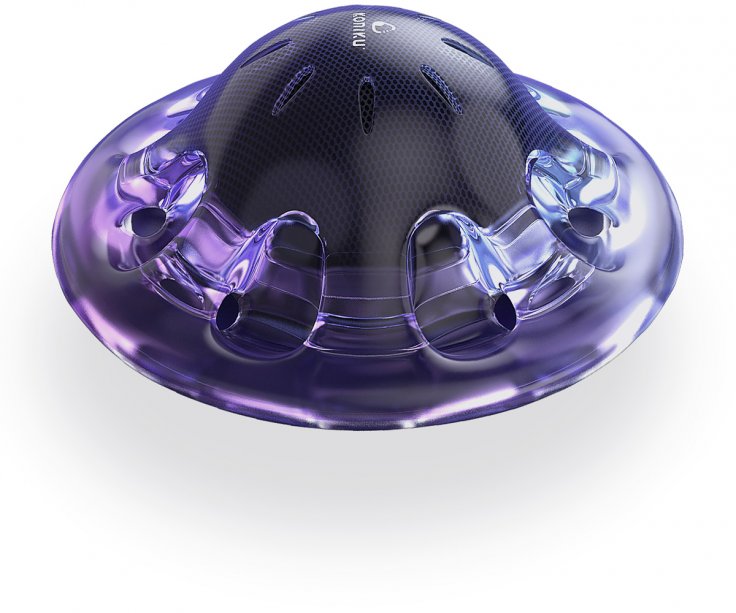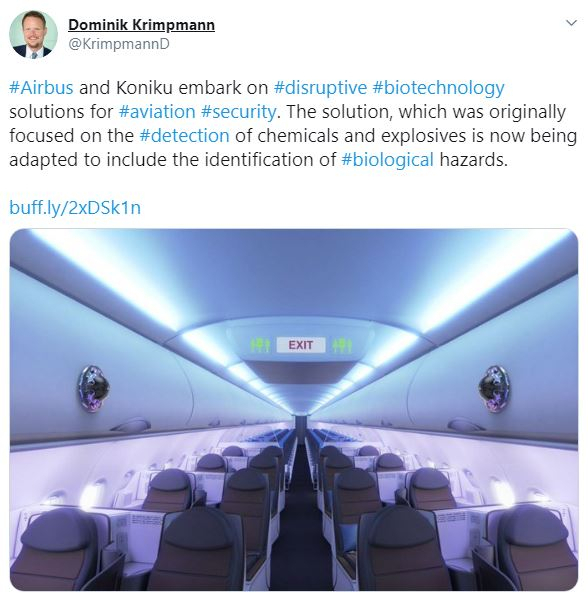A California startup Koniku is working on transforming a bomb-sniffing robot into a device that could sniff out novel Coronavirus infections faster than conventional testing. The company altered its UFO-shaped device to detect Volatile Organic Compounds (VOC's) from breath.
As per the company, the technology fuses neurons with a silicon chip to make a "smell cyborg" with the ability to detect scents ranging from explosives to pathogens and triggers lights if it identifies any.
The company CEO, Oshiorenoya Agabi said that the first product will be delivered to the customers at the end of 2020. He also said, "There are a variety of use cases for the Konikore, including hospitality, entertainment, transportation, logistics, defense, manufacturing, and food."

The New Coronavirus Detection Device
The smell cyborg, to be used by Airbus as the device, would be placed on planes as well as at the airports to identify the explosives and other potentially dangerous materials. According to Airbus, the Konikore device has a response time of under 10 seconds.
Agabi told Bloomberg that the goal of the company is to create a device that "merges synthetic biology with silicon and maps all of the smells of human life on a global scale" and in the US every household should have a device to screen for disease.
Cells containing pathogens discharge organic compounds that cause a kind of scent that can be detected by animals and also by the programmed robots. Koniku is currently testing its Konikore device in clinical trials and found that it has been able to identify the presence of influenza A virus.
A US-based biotech consulting company, Treximo is working with Koniku to conduct the trails for the detection of SARS-CoV-2. Treximo said it is aiming for the first half of the next year to apply for an emergency-use authorization (EUA) with the US' Food and Drug Administration (FDA).

Coronavirus Detection
In the Helsinki Airport, Finland, authorities are hiring a team of dogs, who are trained to sniff out COVID-19, to screen flight passengers. Four dogs trained by the country's Smell Detection Association started working as part of a government-financed trial project.
Researchers at Colorado State University are also developing a virus detector, Aerosol Devices system, which is similar to BioCloud. Scientists at the Ben-Gurion University of the Negev, in Israel, are using graphene technology to build filtration systems that will be able to purportedly protect against novel Coronavirus particles.
A Canadian company, Kontrol Energy Corp is also working on a new technology that could help to detect SARS-CoV-2 indoors. Their BioCloud system includes a fan that helps to draw air into its chamber and then the device starts analyzing the virus particles. As per the company CEO Paul Ghezzi, the new technology will "flag an alert for COVID-19 and then you can properly test each individual (in the room)."









